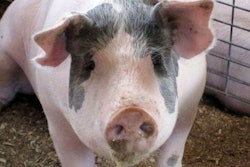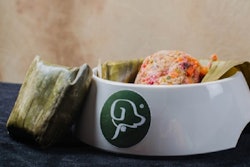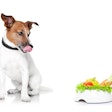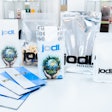
The Pet Food Additive Information Act filed in October 2018 is currently waiting for its second reading at the Philippine Senate.
About the Act
Designed to inform the public about additives in pet food through proper labels, Senate Bill No. 2068 was introduced by Senator Nancy Binay, a known animal lover.
The proposed bill, now with the Committees on Trade, Commerce and Entrepreneurship; and Health and Demography, seeks to require pet food makers to include in their product labels all information on the ingredients and additives used, especially those that are carcinogens and proven to cause detrimental side effects based on standards to be set by the Bureau of Food and Drugs (BFAD).
The pet food bill finds a stronger sense of urgency after the U.S. Food and Drug Administration (FDA) recently named 16 brands of dog food that are possibly causing canine dilated cardiomyopathy (DCM).
Binay said high levels of preservatives in commercial pet food could cause skin allergies and gastrointestinal problems and may damage major organs such as the kidney, liver and brain. Knowing what goes into pet food will help the public choose only what is safe for their pets to eat. The senator's measure complements RA 8485, otherwise known as The Animal Welfare Act of 1998.
Bill would support labeling regulations
The proposed bill is also seen to back the formulation of the Philippine National Standard on Pet Food Labeling that was initiated in 2014 by the private sector and the Bureau of Agriculture and Fisheries Standards and Bureau of Animal Industry (BAI).
The standard applies to labeling requirements of manufactured wet and dry pet food being fed to dogs and cats. The pet food label forms part of a legal document, which must have all information required such as, but not limited to, the following:
- Legal product name and brand name, but may also include a manufacturer’s name. The product name provides information about the individual identity of the particular product within the brand and is subject to existing regulations.
- Designator (Statement of Intent): clearly identifies the animal for which the product is intended.
- Net Weight of contents.
- Graphic or pictorial representation of the product on the pet food label that is not misrepresenting the contents of the package.
- All nutritional adequacy claims that can be substantiated, except when the dog or cat food is clearly identified on the principal display panel as a “snack” or “treat.”
- All ingredients declared in descending order of proportion by weight, including pet food supplements and additives. Where a pet food supplement and additive belongs to a class described by one of the names (antioxidants, flavors, humectants, preservatives, vitamins, colors, food acids, minerals, stabilizers, gelling agents, thickeners, emulsifiers, mineral salts), that name should be used in the list of ingredients to identify that food additive.
- Feeding directions: state if under veterinary supervision, for what animal, for what life stage, etc.
- Storage conditions, batch and date coding.
- Name and address of the manufacturer and/or importer (for imported products).
- BAI Certificate of Feed Product Registration Number. (For imported products that are also distributed to other countries, the importer or distributor should affix stickers or any other means to indicate the BAI Certificate of Product Registration Number).
Pet food in the Philippines
The Philippines has several companies that manufacture pet food mainly for domestic consumption. The United States is the leading supplier of dog and cat food to the Philippines with a 45% market share. Other major exporters of dog and cat food to the Philippines include Thailand, Australia, France and Italy. Thailand exports consist primarily of processed fish-based cat food.
Private sector representatives who helped draft the Philippine National Standard on Pet Food Labeling came from local and international pet food companies; namely, Pet One Inc., PRO Inc., Nestlé Philippines, Mars Inc., Royal Canin Phils. Inc. and Hill’s Pet Nutrition Inc.















